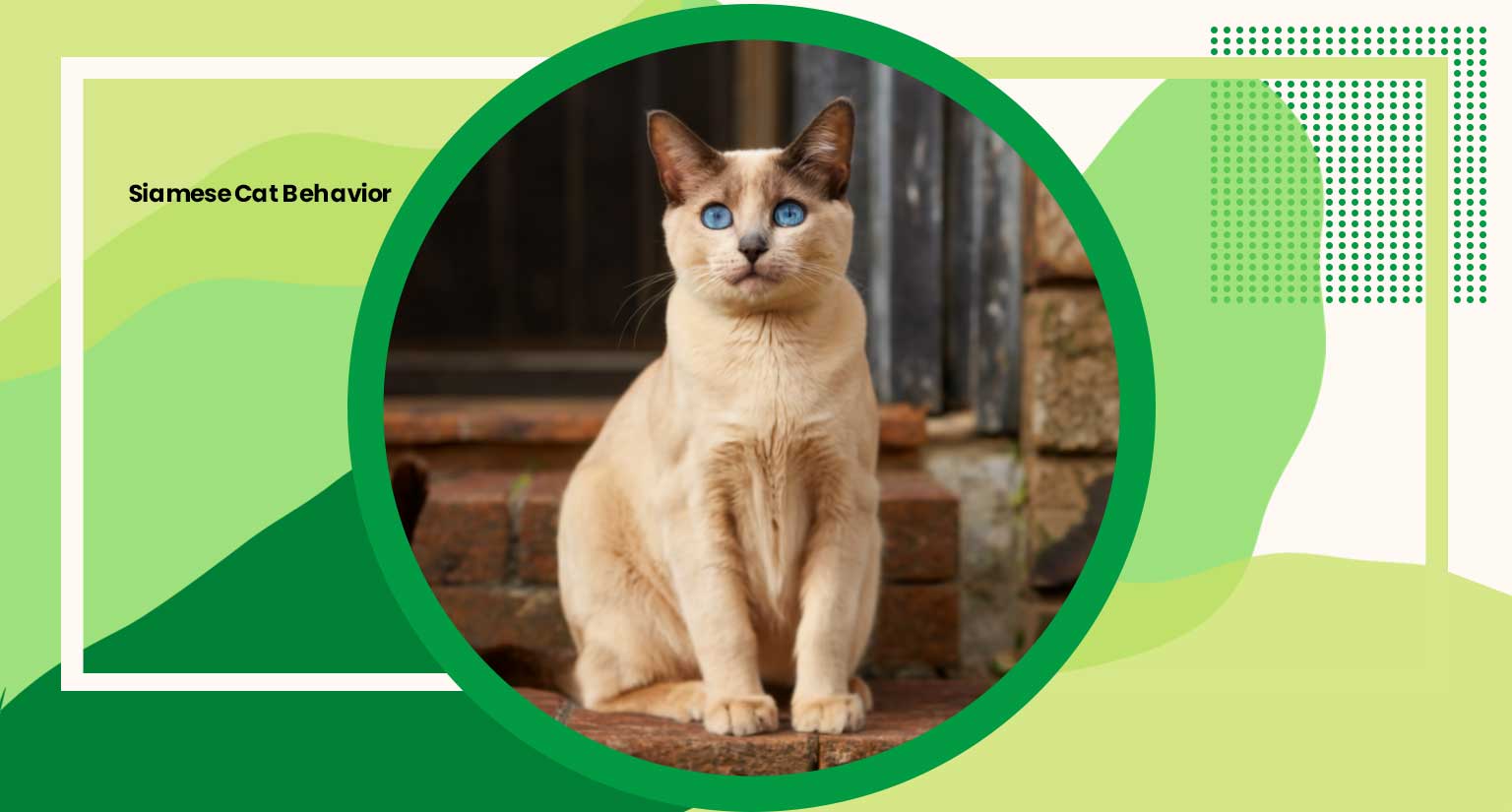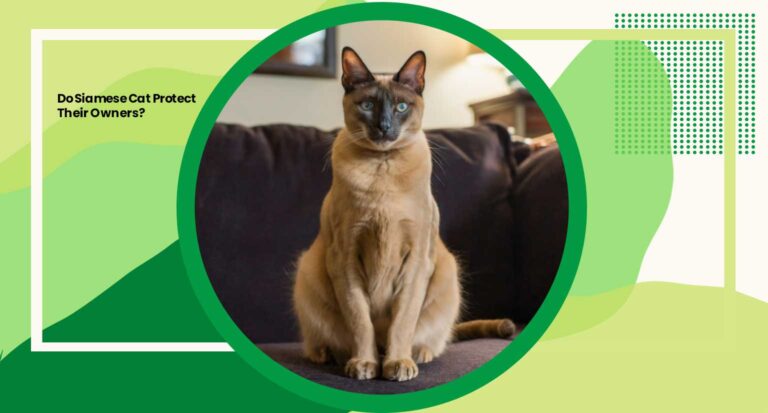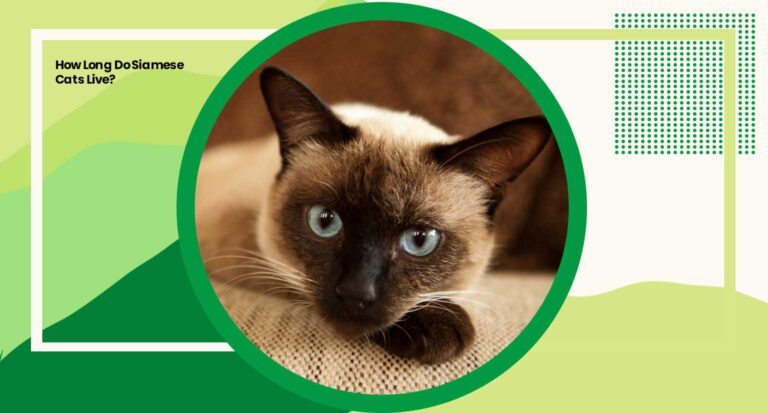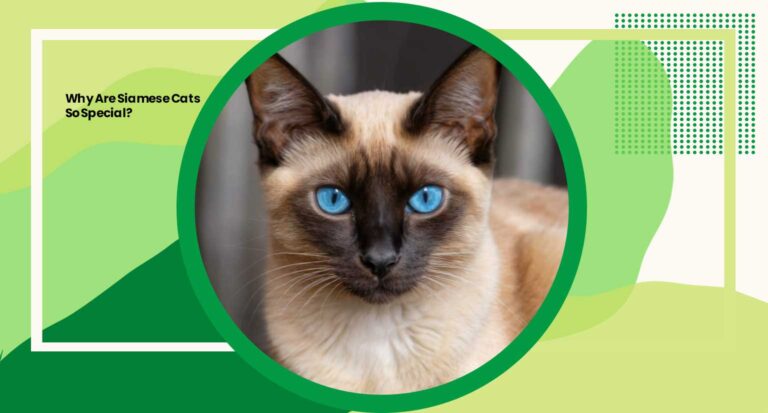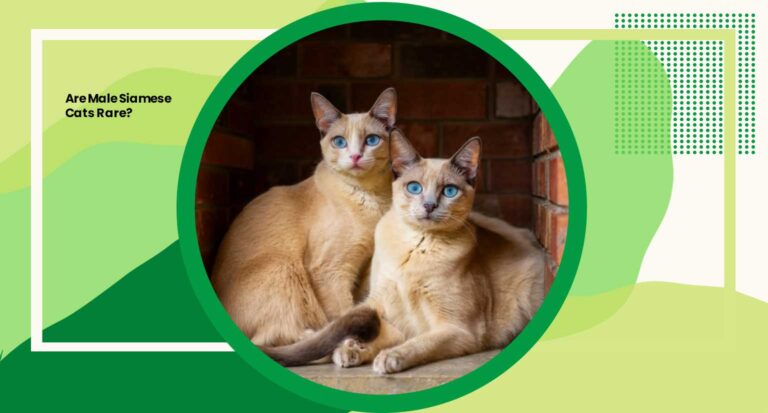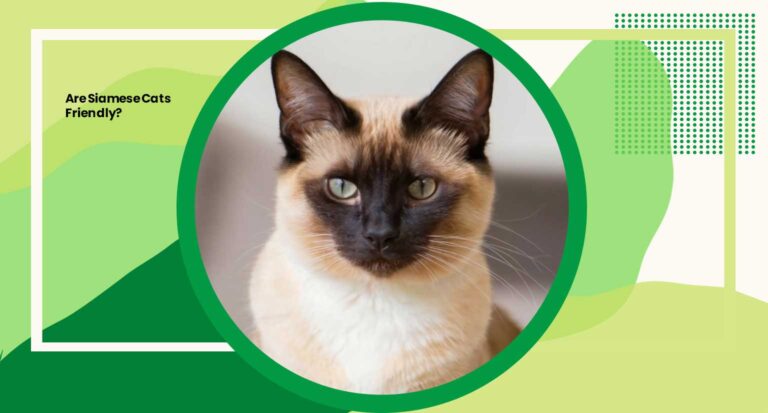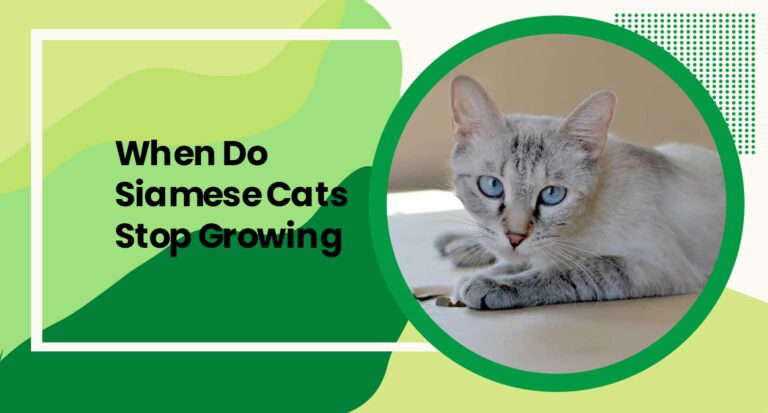Siamese Cat Behavior: 7 Fascinating Traits Every Owner Should Know
Siamese cat behavior is as captivating as their striking appearance. These feline companions are renowned for their distinctive personalities and unique habits, making them a favorite among cat enthusiasts worldwide.
From their vocal nature to their social tendencies, Siamese cat behavior offers insights into the intricate dynamics of these beloved pets. Understanding Siamese cat behavior is essential for providing them with the care and companionship they thrive on.
Understanding Siamese Cat Behavior: 7 Characteristics Of Siamese Cats
Vocal Nature
Siamese cats are renowned for their vocal prowess, often engaging in conversation with their human companions. Their distinctive meows, chirps and even loud yowls convey their emotions and desires, making them excellent communicators.
Affectionate Disposition
Known for their affectionate nature, Siamese cats thrive on human companionship. They form strong bonds with their owners and enjoy cuddling, snuggling and being in close proximity to their loved ones.
Playful Demeanor
Siamese cats possess an innate sense of curiosity and playfulness. They enjoy interactive play sessions and are particularly fond of toys that stimulate their mental and physical faculties, such as puzzle feeders and feather wands.
Social Behavior
Siamese cats are highly social creatures and often crave attention and interaction. They enjoy being part of the family dynamic and may become lonely or anxious if left alone for extended periods.
Intelligent and Mischievous
With their high intelligence levels, Siamese cats are adept at problem solving and may even figure out how to open doors or navigate complex environments. However, their intelligence can also lead to mischief if not provided with adequate mental stimulation.
Loyal Companions
Siamese cats are fiercely loyal to their owners and often develop strong attachments to specific individuals within the household. They thrive on companionship and will eagerly follow their chosen human from room to room.
Demanding Attention
Due to their social nature and need for stimulation, Siamese cats can be demanding of attention. They may vocalize or exhibit attention seeking behaviors when they feel ignored or neglected, making them a constant presence in their owners’ lives.
Understanding these seven key characteristics of Siamese cats is crucial for providing them with the love, care and enrichment they need to thrive as cherished family members.
Do Siamese Cats Have Behavioral Issues?
While Siamese cats are beloved for their engaging personalities and affectionate nature, like any breed, they can experience behavioral challenges that require attention and understanding from their owners. Here are some common behavioral issues observed in Siamese cats.
Separation Anxiety
Siamese cats are highly social creatures that form strong bonds with their human companions. As a result, they may experience separation anxiety when left alone for extended periods. This can manifest in behaviors such as excessive vocalization, destructive chewing or inappropriate elimination.
Attention Seeking Behavior
Siamese cats crave attention and may resort to attention seeking behaviors if they feel ignored or neglected. This can include meowing incessantly, pawing at their owners or engaging in disruptive behaviors to garner attention.
Aggression Towards Other Pets
Siamese cats can be territorial and may exhibit aggression towards other pets in the household, particularly if they perceive them as intruders encroaching on their territory. Proper introductions and gradual socialization are essential to prevent conflicts between Siamese cats and other animals.
Destructive Behavior
Siamese cats are intelligent and active creatures that require mental and physical stimulation to thrive. Without adequate enrichment, they may engage in destructive behaviors such as scratching furniture, chewing on household items or knocking over objects out of boredom or frustration.
Excessive Vocalization
While Siamese cats are known for their vocal nature, excessive meowing or yowling can become a problem if it disrupts the household or indicates underlying distress. Identifying the root cause of the vocalization, whether it’s boredom, anxiety or medical issues, is crucial in addressing this behavior.
Litter Box Issues
Some Siamese cats may develop litter box aversions or inappropriate elimination habits, especially if they associate the litter box with negative experiences or if the litter box is not kept clean to their liking. Consistent litter box maintenance and providing multiple litter boxes in different locations can help mitigate this issue.
Stress Related Behaviors
Siamese cats are sensitive creatures that may exhibit stress related behaviors in response to changes in their environment or routine. This can include hiding, over grooming or decreased appetite. Minimizing stressors and providing a stable, secure environment are essential for supporting the emotional well being of Siamese cats.
Addressing Behavioral Challenges
Understanding the underlying causes of behavioral issues in Siamese cats is the first step towards addressing and resolving them. Working closely with a veterinarian or animal behaviorist can help identify potential triggers and develop tailored strategies to manage and modify problematic behaviors.
With patience, consistency and positive reinforcement, many behavioral challenges in Siamese cats can be effectively addressed, allowing them to lead happy, fulfilling lives as cherished companions.
Caring For Siamese Cats
Caring for Siamese cats involves more than just meeting their basic needs, it requires understanding their unique temperament, health considerations and environmental preferences. Here’s a comprehensive to ensure your Siamese cat receives the best possible care.
Proper Nutrition
Feed your Siamese cat a balanced diet formulated to meet their specific nutritional needs. Choose high quality cat food that is appropriate for their age, activity level and any health concerns. Siamese cats are prone to obesity, so monitor their food intake and avoid overfeeding.
Regular Veterinary Care
Schedule regular veterinary check ups for your Siamese cat to monitor their overall health and address any medical concerns promptly. Keep up to date with vaccinations, parasite prevention and dental care to ensure your cat’s well being and longevity.
Environmental Enrichment
Provide plenty of mental and physical stimulation for your Siamese cat to prevent boredom and behavioral issues. Offer interactive toys, scratching posts and climbing structures to satisfy their natural instincts and keep them entertained.
Social Interaction
Siamese cats are social creatures that thrive on companionship and attention. Spend quality time with your cat through play sessions, grooming and cuddling to strengthen your bond and fulfill their need for human interaction.
Grooming and Hygiene
Regular grooming is essential to keep your Siamese cat’s coat healthy and free of tangles or mats. Brush their coat weekly to remove loose hair and reduce shedding. Additionally, trim their nails, clean their ears and brush their teeth regularly to maintain their overall hygiene.
Litter Box Maintenance
Provide a clean and comfortable litter box for your Siamese cat and scoop it daily to remove waste. Use unscented, clumping litter and place the litter box in a quiet, accessible location to encourage regular use.
Environmental Comfort
Create a safe and comfortable environment for your Siamese cat with plenty of cozy resting spots and hiding places. Ensure access to fresh water, comfortable bedding and a warm, quiet space for rest and relaxation.
Monitoring Behavior and Health
Stay attuned to your Siamese cat’s behavior and health status and seek veterinary attention if you notice any changes or abnormalities. Monitor their appetite, litter box habits, activity level and overall demeanor for signs of illness or distress.
Spaying or Neutering
Consider spaying or neutering your Siamese cat to prevent unwanted litters and reduce the risk of certain health issues, such as reproductive cancers and behavioral problems related to mating behaviors.
By following these guidelines and providing attentive, compassionate care, you can ensure that your Siamese cat lives a long, healthy and fulfilling life as a cherished member of your family. Remember to tailor your care routine to your cat’s individual needs and preferences to promote their overall well being and happiness.
Conclusion
In conclusion, Siamese cat behavior is key to fostering a strong and fulfilling bond with these captivating feline companions. From their vocal nature to their affectionate demeanor, Siamese cats exhibit a range of unique traits that make them beloved pets.
By providing proper care, enrichment and companionship, cat owners can ensure that their Siamese cats thrive both physically and emotionally. Embracing the intricacies of Siamese cat behavior enriches the lives of both cats and their human counterparts, creating a harmonious and rewarding relationship based on mutual understanding and love.

